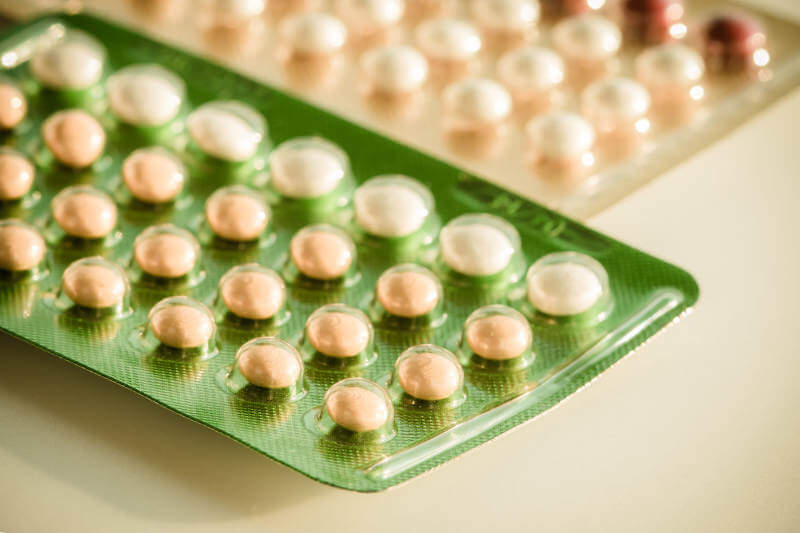How long does it take for your fertility to return after stopping birth control?
The time varies from woman to woman and depends on the type of birth control you used. Read on to find out how long it usually takes for different types of birth control.
Trying to get pregnant after birth control pills (the pill)
After coming off the pill, it may take a few months for your menstrual cycle and fertility to return to normal.
However, in most cases, your cycle will go back to normal right after you stop taking those birth control pills. So, all you really have to do to reverse the effects of the pill is to stop taking them.

How to detect when you are ovulating again
There are numerous ways to detect ovulation. Some women can feel when they are ovulating because they get what they describe as slight cramps in the area of their ovaries.
You should notice a change in cervical mucus which is likely to be wetter and egg white like in appearance before ovulation. See our guide to cervical mucus observations.
Tracking your basal body temperature (BBT) is another option and can also be logged in Ovulation Calculator. After ovulation your BBT should rise slightly and remain elevated until the end of your cycle.
Here is a full list of 12 ovulation symptoms including details on what to expect.
How long does it take to get pregnant after the pill?
The amount of time it takes to get pregnant after taking the pill varies for each women. Fertility is a very individual issue, and even without taking the pill, there are many factors to consider. Although most women return to their normal fertility after they stop taking the pill, it may take a few months for others to start ovulating again.
Nevertheless, even when you do start ovulating again, there is no guarantee that you will get pregnant right away. There are fertility issues that have nothing to do with ovulation, and if you and your partner are dealing with one of them, you may have trouble conceiving even with regular ovulation.
The general rule of thumb is to try to conceive for a full six months before seeking help if you are over 35, and 12 months if you under 35. If you have not conceived within this time, you and your partner may consider visiting a doctor for fertility testing.
Is it safe to get pregnant right after the pill?
Many women are able to get pregnant soon after stopping the pill and go on to have healthy pregnancies. While it is completely safe to do so, some healthcare practitioners suggest waiting a cycle or two as it can help you to establish a more accurate due date.
If your cycles are irregular when you conceive, it can be difficult to pinpoint a conception date from your last menstrual period. Even if this happens, you can rely on your first sonogram, often called a dating sonogram, to tell you when you are due.
What about the mini-pill?
Mini-pills contain a low dose of synthetic progesterone, which flows through your body rapidly. In fact, its effects do not last much longer than 24 hours. This is why your doctor may have been so firm about you taking the mini-pill at the same time every day. You can consider yourself fertile and ready to conceive the day after you stop taking your mini-pills.
Getting pregnant after Depo-Provera
Depo Provera is hormonal contraceptive birth control drug that is injected every three months into the arm. The shot has to be repeated every three months to prevent pregnancy.
Depo-Prevera is well know brand name for Depot medroxyprogesterone acetate (DMPA). It is made from a hormone similar to progesterone and is 99.7% effective in preventing an egg being released from the ovary.
Many women prefer it because not only does it alleviate the stress of worrying about taking a pill, it also has a success rate of 99.7%. However, because it has a longer-term effect than a birth control pill, many women also worry about getting pregnant after they stop getting shots.
Once injected with Depo, the effect cannot be reversed and it can take months for its full effect to wear off and 12 months before leaving your system completely, in some cases even longer. However, some women become pregnant as soon as three to four months after stopping Depo-Prevera. The average time it takes to get pregnant after Depo-Provera is nine months, but it can take some women up to two years.
Since there is nothing you can do to reduce the time to takes to wear off, start preparing your body for pregnancy, this will help you get pregnant sooner once Depo has left your system.
The "Morning After Pill"
Accidents and unplanned pregnancies happen. And these days, if you think an unplanned pregnancy may take place, women have more options than waiting and deciding whether to opt for an invasive surgical abortion.
The morning after pill, also known as emergency contraception, is considered as a type of birth control that you can use for up to five days after you have had unprotected sex to help prevent unplanned pregnancy. But this pill was not designed to be used as a substitute for standard birth control. If you have used the morning after pill to prevent pregnancy in the past, there are some things you should know.

Impact on fertility
When taken sparingly, the morning after pill, often referred to as "Plan B," does not have an impact on fertility. It works much in the way that your birth control pill works, but the potency is much greater than that of the birth control pill. This pill is meant to disrupt your cycle, so it is not healthy to take on a regular basis. You should return to your normal cycle about 32 days after taking this pregnancy termination pill. Although this is still within the range of normal, it is not ideal. And adding these high-dose hormones to your body on a regular basis may have long-term effects. However, if you have only used the morning after pill sparingly, it should not have an impact on your fertility at all.
If you are having trouble trying to conceive and have had an abortion or taken a pregnancy termination pill, talk to your doctor. The chances are good that your fertility issues do not have anything to do with your past abortion, but it is important for your doctor to have all the facts before he or she can diagnose any potential issues and get you back on the road to pregnancy. The good news is that if you have had a previous pregnancy, you are likely to be ovulating normally, which is a major part of becoming pregnant.
Morning After Pill Vs. Abortion Pill
If you have taken some form of pregnancy prevention or termination pill in the past, you should know which you have taken. There is a difference between the morning after pill and an abortion pill. The abortion pill, or medical abortion, can usually be taken up to 63 days after the first day of your last period, although some states have restrictions that limit the use of this pill to 49 days.
The abortion pill blocks your body's progesterone production, which will cause the lining of the uterus to break down. Then you are given a second medication to empty the contents of your uterus. Either way, whether you have taken the morning after or abortion pill sparingly, you should not have issues with fertility, but it is important that you know the difference, so you can discuss your medical history with your health care practitioner.
What to do after stopping birth control?
As soon as you decide that you would like to try and get pregnant you should start taking a prenatal vitamin, it is advised that you take one at least three months before trying to conceive in order to provide your body with the required nutrients to support a healthy baby right from the moment of conception. Why you need to take prenatal vitamins BEFORE getting pregnant.
Next, you should prepare your body for pregnancy, see How To Prepare Your Body For Pregnancy for a complete list of things you should be doing to provide you with the best chances of conception and a healthy pregnancy and baby.
Finally, have a look at how to detect when you're most fertile so you can ensure you get the timing of intercourse right each cycle.







